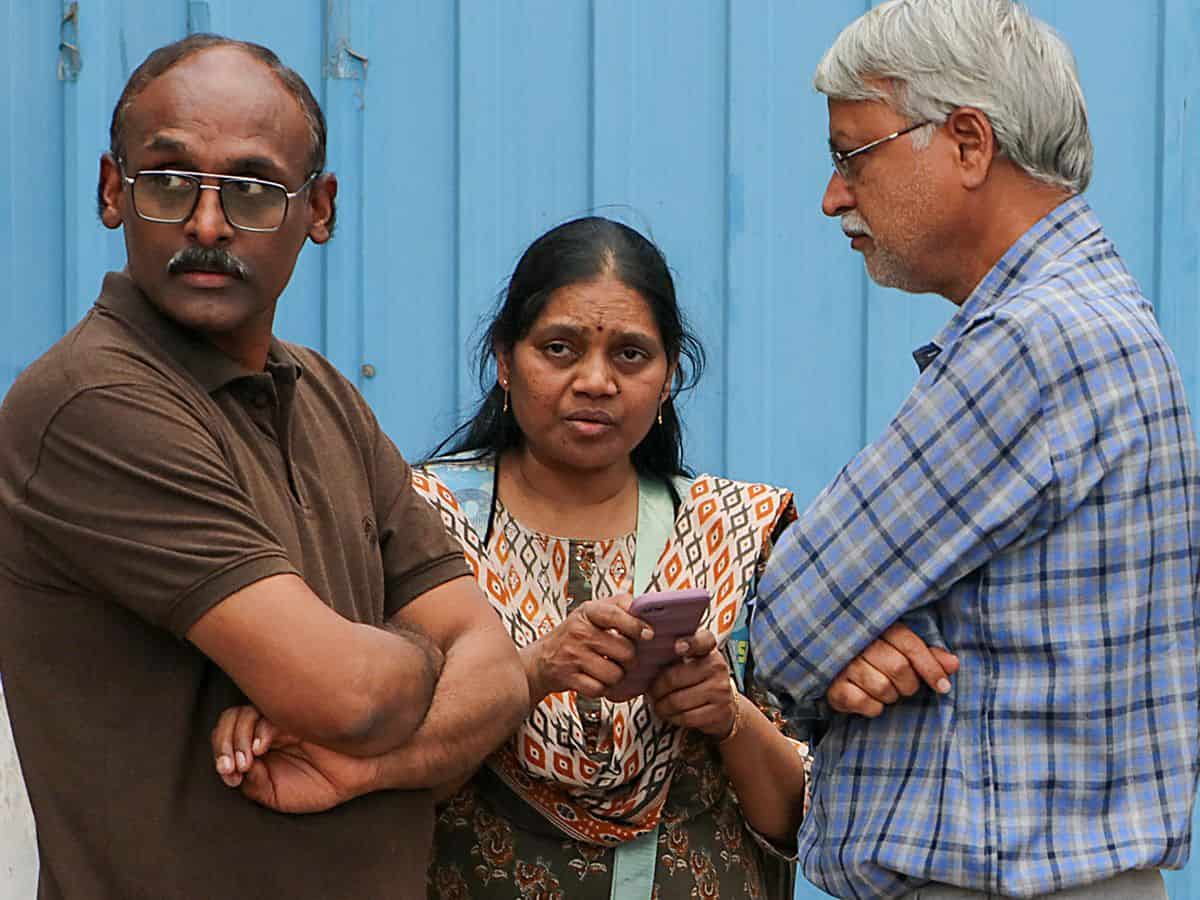
Nagpur: Her husband’s eventual acquittal by the high court in the alleged Maoist links case was inevitable, but it still wasted ten years of their lives, former Delhi University professor G N Saibaba’s wife said on Wednesday.
Saibaba, whose life sentence was overturned by the Bombay High Court on Tuesday, was not likely to be released from the Nagpur central jail on Wednesday night as they had not received necessary documents from the trial court in Gadchiroli, jail sources said.
Her husband was innocent and having an ideology is no offence, said Vasantha Kumari, speaking to PTI on phone from outside the jail where Saibaba is lodged since his arrest in 2014.
“Ten years of our lives were wasted. The HC judgment clearly states that the sanction given to prosecute my husband and the other five accused was itself illegal,” Vasantha said.
“This means they were illegally detained all this time….They could not have been convicted in the first place,” she said.
Her husband, their family and his legal team knew that his case was strong, Vasantha said.
“This was bound to happen. There is absolutely no evidence against my husband. Having an ideology is not a crime and the high court has rightly accepted this while acquitting Saibaba and others,” she noted.
Her husband only raised his voice when the government violated the fundamental rights of citizens, she said, adding that she hoped the prosecution would not create further obstacles in his release.
Vasantha also claimed that at the time of his arrest in 2014, Saibaba only had hypertension, but now he is suffering from several other ailments.
“He is paralysed and wheelchair-bound. We will decide the further course of treatment once he is released,” she said.
The Nagpur bench of the Bombay High Court on Tuesday acquitted Saibaba noting that the prosecution failed to establish the charges against him and five others beyond reasonable doubt.
Further, the sanction to prosecute them under the stringent Unlawful Activities (Prevention) Act was null and void as it was not obtained legally and properly, the court said.



